
Code: 08243050
Relationships Between Political Development and Intervention
by David T London
The Democratic Republic of the Congo (the Congo) received its independence from Belgium on 30 June 1960. The Congo's political development from the 1700s to 1960 resulted in a democratically elected Congolese administration that a ... more
- Language:
 English
English - Binding: Paperback
- Number of pages: 54
Publisher: Biblioscholar, 2012
- More about this

56.85 €
RRP: 57.98 €
You save 1.13 €

In stock at our supplier
Shipping in 15 - 20 days
You might also like
-

Velocity Plume Profiles for Hall Thrusters Using Laser Diagnostics
56.85 € -1 % -

Free to Dream
16.49 € -
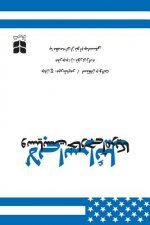
Israel Lobby and U. S. Foreign Policy
28.27 € -7 % -

Seven Things That God Hates & Seven Letters to Seven Churches
21.63 € -
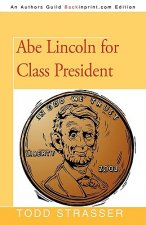
Abe Lincoln for Class President
9.25 € -24 % -

Long Road Home...
24.04 € -6 % -
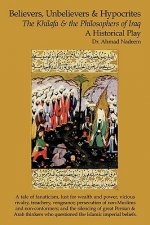
Believers, Unbelievers, and Hypocrites
21.63 € -

Ballads and Other Poems
13.88 € -1 % -

My Life is an Open Book
17.10 € -

Nassau Incident
28.17 € -

Voyage de Humboldt Et Bonpland. Personal Narrative of Travels to the Equinoctial Regions of the New Continent During the Years 1799-1824 Translated In
38.43 € -

Ode for an Entertainment of Musick on Her Majesty's Birth-Day, and the Success of Her Majesty's Arms by Sea and Land. the Night Performance Before Her
13.68 € -18 % -

Bolt and Win
27.87 € -18 % -
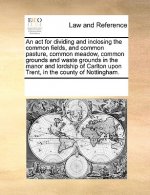
ACT for Dividing and Inclosing the Common Fields, and Common Pasture, Common Meadow, Common Grounds and Waste Grounds in the Manor and Lordship of Car
16.29 €
Give this book as a present today
- Order book and choose Gift Order.
- We will send you book gift voucher at once. You can give it out to anyone.
- Book will be send to donee, nothing more to care about.
More about Relationships Between Political Development and Intervention
You get 143 loyalty points
 Book synopsis
Book synopsis
The Democratic Republic of the Congo (the Congo) received its independence from Belgium on 30 June 1960. The Congo's political development from the 1700s to 1960 resulted in a democratically elected Congolese administration that at the time of independence was unable to operate the national government or the economy. As a result, the Congo became a failing state within days of gaining independence. Beginning with King Leopold II's reign over the Congo in 1885 and continuing under the administrations of President Joseph Mobutu, President Laurent Kabila, and President Joseph Kabila, successive Congolese administrations employed four governing practices that undermined the country's stability. Congolese administrations relied upon foreign political support to retain power. They used private international companies to fulfill many security and economic functions. They manipulated ethnic differences within their populations to maintain control, and they used the state's resources to increase their own personal wealth and power at the expense of the Congo's larger social well being. These governing practices have both helped and thwarted international interventions into the Congo since 1960. Between 1960 and 2005, the United Nations, the international community, and various African states launched interventions into the Congo. The intervening entities used a combination of military, political, and economic means to stabilize the Congo. The interventions varied in their use of opportunities made available by the Congo's state of political development. Examples of such opportunities included the widespread public support for democratic rule, the presence of a democratically elected administration, and the Congo's dependence on foreign aid. Most of the interventions ignored existing opportunities to improve the stability of the Congo's government and instead pursued the national interests of the intervening entities, often to the detriment of the larger Congolese population
 Book details
Book details
Book category Books in English Society & social sciences Education
56.85 €
- Full title: Relationships Between Political Development and Intervention
- Author: David T London
- Language:
 English
English - Binding: Paperback
- Number of pages: 54
- EAN: 9781288313150
- ISBN: 9781288313150
- ID: 08243050
- Publisher: Biblioscholar
- Weight: 113 g
- Dimensions: 246 × 189 × 3 mm
- Date of publishing: 19. November 2012
Trending among others
-

Jim Trelease's Read-aloud Handbook
16.80 € -27 % -

Powerful Teaching: Unleash the Science of Learning
26.26 € -26 % -

Cambridge IGCSE (R) & O Level Complete Chemistry: Student Book Fourth Edition
42.46 € -
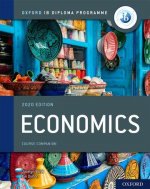
Oxford IB Diploma Programme: IB Economics Course Book
62.28 € -

Cambridge IGCSE (R) & O Level Complete Physics: Student Book Fourth Edition
41.96 € -

OET Preparation
9.65 € -

Business Partner B1+ Workbook
16.90 € -3 % -

Oxford IB Diploma Programme: IB Theory of Knowledge Course Book
62.79 € -

Speed and Accuracy: Multiplication
8.64 € -

Pearson Edexcel International GCSE (9-1) English Language B Student Book
50.41 € -

KS3 Maths 10-Minute Weekly Workouts - Year 7
8.04 € -8 % -

KS3 Maths 10-Minute Weekly Workouts - Year 8
8.04 € -8 % -

The End of Education
13.48 € -25 % -

Deep Healing and Transformation
48.40 € -

Dancing Heads
12.17 € -24 % -

Freiarbeitsmaterial für die Grundschule - Deutsch - Klasse 1/2
22.83 € -4 % -

AQA GCSE German Higher Practice Papers
15.39 € -

Business Partner B1 Workbook
17.50 € -8 % -

Business Partner B2 Workbook
16.90 € -3 % -

Blue Book of Grammar and Punctuation: An Easy- to-Use Guide with Clear Rules, Real-World Examples , and Reproducible Quizzes, Twelfth Edition
15.19 € -28 % -

Grade 9-1 GCSE Maths AQA Revision Question Cards - Higher
10.05 € -4 % -

Positive Discipline Tools for Teachers
17.40 € -18 % -

Speed and Accuracy: Division
8.64 € -

Pearson Edexcel AS and A level Mathematics Statistics & Mechanics Year 1/AS Textbook + e-book
17.80 € -

(ISC) SSCP SG & SSCP Practice Test Kit, 3e
84.02 € -5 % -

Motivation and Reinforcement
46.18 € -

Read Write Inc. Phonics: Red Ditty Book Bag Books (Mixed Pack of 10)
74.36 € -

Imagine If...
11.26 € -28 % -

OET Reading Subtest Preparation
12.57 € -7 % -

Oxford International Primary Maths Second Edition: Practice Book 1
15.99 € -

Vol 2 Blackletter Lettering Adventures
25.25 € -2 % -

AS & A Level Maths For Dummies
17.30 € -27 % -

Forensic Linguistics Articles
14.48 € -1 % -

CompTIA Security+ Review Guide - Exam SY0-601
24.85 € -24 % -

Practical Guide on Veterinary First Aid using Homeopathy
14.78 € -2 % -

Abolition of Man
18.61 € -1 % -

Human Landscapes from My Country
28.67 € -21 % -

Corrected Squares of The Book of Abramelin
503.88 € -

Hanbo Jutsu: Use of Hanbo, Cane and Walking Stick for Self Defense
11.26 € -

Reading Mind - A Cognitive Approach to Understanding How the Mind Reads
21.53 € -28 % -

North Korea's Military Threat
25.45 € -

English Language & Literature WORKBOOK: York Notes for GCSE (9-1)
8.95 € -9 % -

Release Your Inner Drive
15.09 € -18 % -

Effect of Registration Errors on Tracking in a Networked Radar System
56.85 € -1 % -

Princeton Review SAT Premium Prep, 2021
42.66 € -4 % -

CEH v11 Certified Ethical Hacker Study Guide + Practice Tests Set
74.76 € -5 % -

10 Practice Tests for the SAT, 2021 Edition
31.59 € -
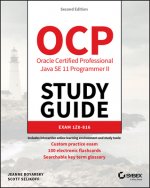
OCP Oracle Certified Professional Java SE 11 Programmer II Study Guide - Exam 1Z0-816 and Exam 1Z0-817
50.01 € -4 % -

Scrum - A Pocket Guide - 2nd edition
34.21 €
Collection points Bratislava a 2642 dalších
Copyright ©2008-24 najlacnejsie-knihy.sk All rights reservedPrivacyCookies


 15549 collection points
15549 collection points Delivery 2.99 €
Delivery 2.99 € 02/210 210 99 (8-15.30h)
02/210 210 99 (8-15.30h)